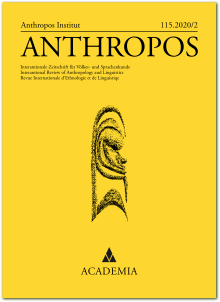Subaita Zubair, Urwah Ali and Zuba’a Akhtar: An Ethnographic Investigation of Women’s Perceptions and Cognition Regarding Skin Color in Pakistan
Abstract
The anthropological psychological study tends to explore female perception concerning diverse skin colors and different connotations associated with it in Pakistan’s society. It is intended to highlight preferable and judgmental cognitions attached with gender skin tone, by exploring the reasons, which propagate this kind of thinking in culture. A qualitative methodology of in-depth interviews and focus group discussions was employed. The sample included late adolescents (aged 18–24) and early adults (24–34) from the area of Islamabad and Rawalpindi (Pakistan). Purposive sampling was applied and thematic analysis was used as a qualitative paradigm. The number of respondents comprised of 15 females of which 5 were gym-goers. This culture has its biased and paradoxical ways when it comes to expectations and objectification genders face with regard to body image, particularly skin complexion. Schemas and biased standards play their role, when it comes to judging people on their appearance and attractiveness. Conclusively, according to my study, fair color, attractive looks, and appealing personality always received more favors than obese, dark skin colored sexes. Fair complexion is assumed to open gates to opportunities and incredible chances for females, especially when it comes to mate selection or matrimony.
[Pakistan, skin color, women, objectification, psychology, anthropology]
